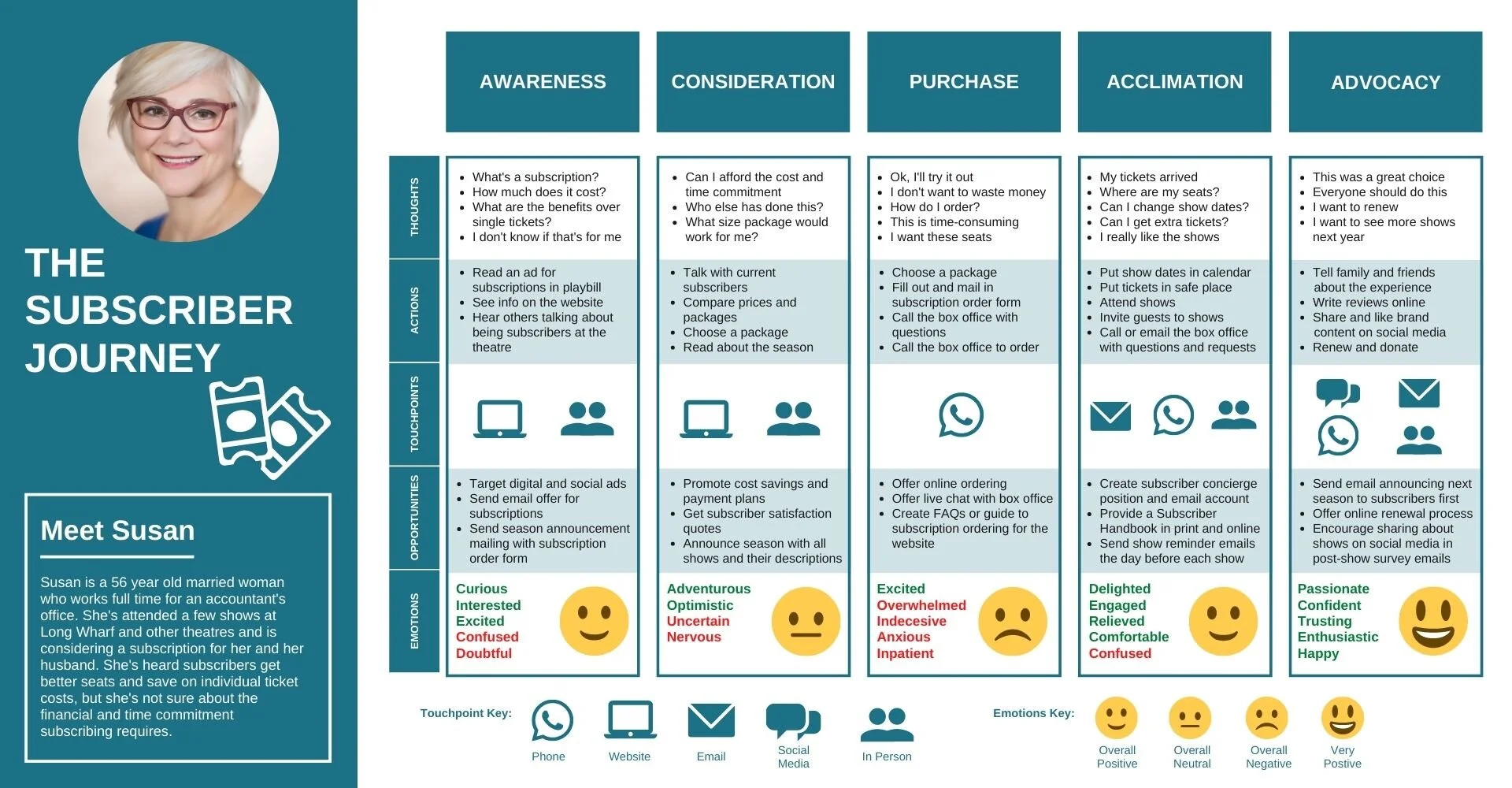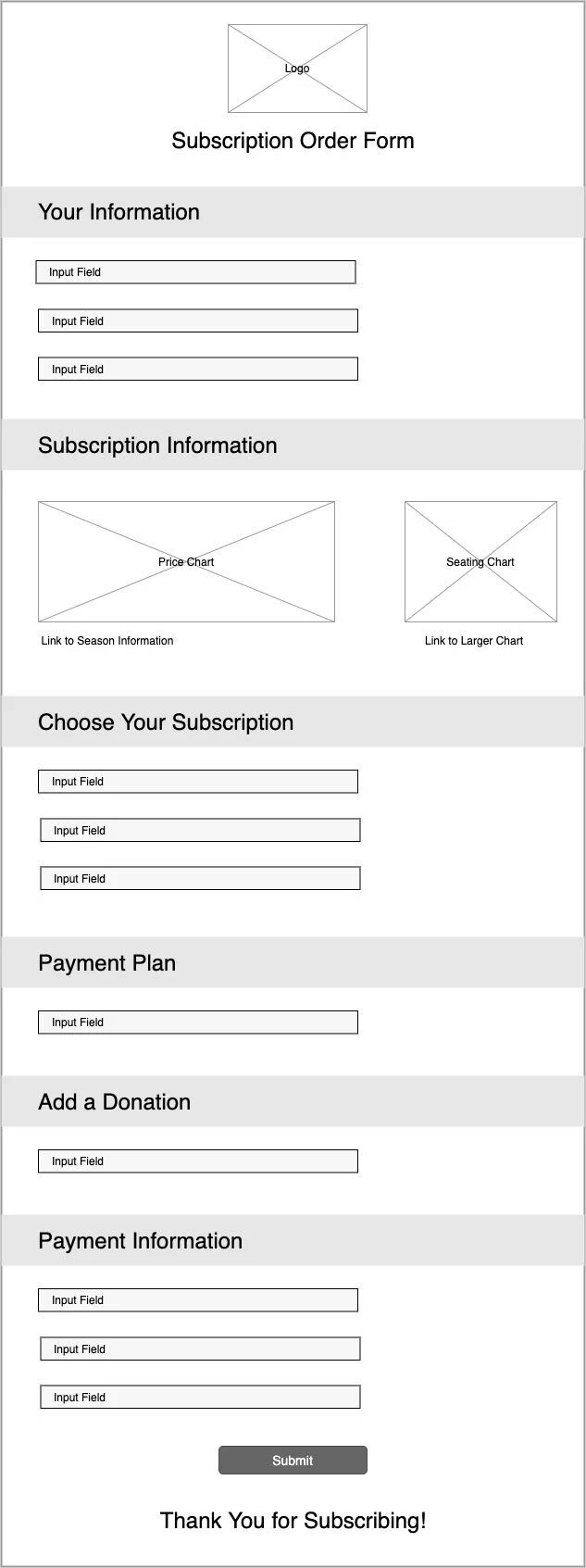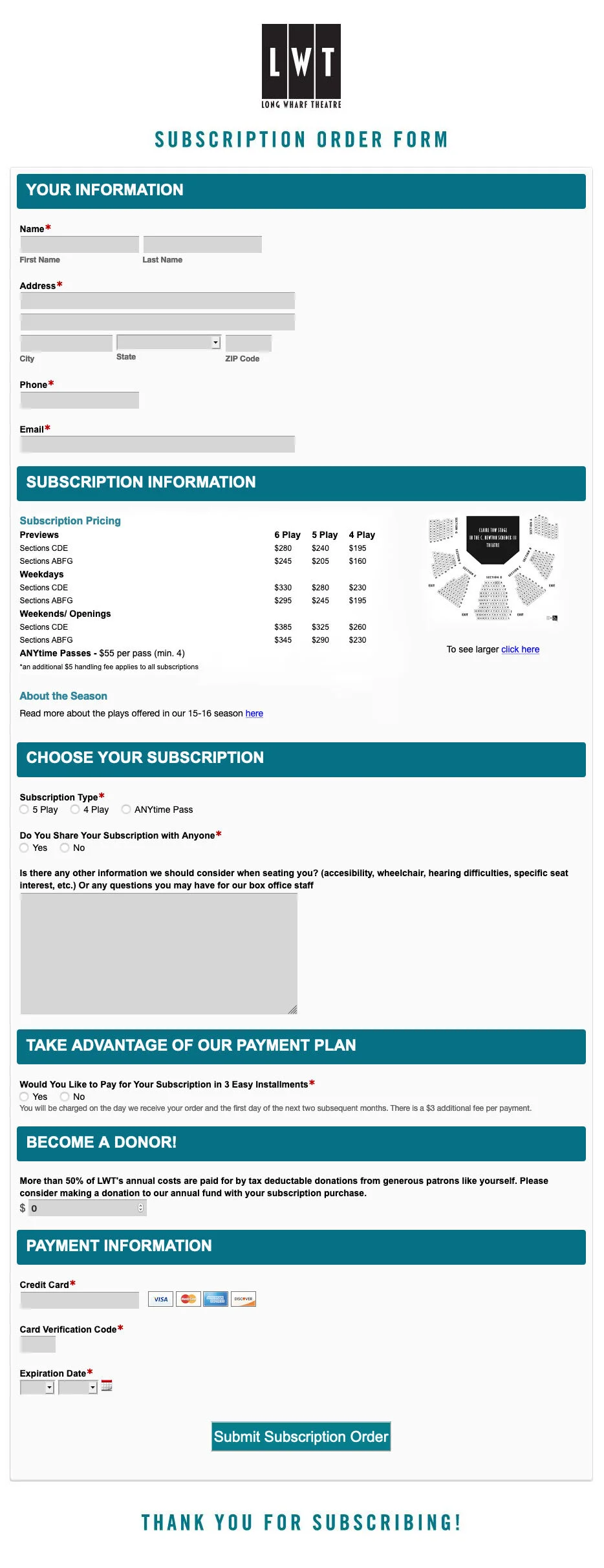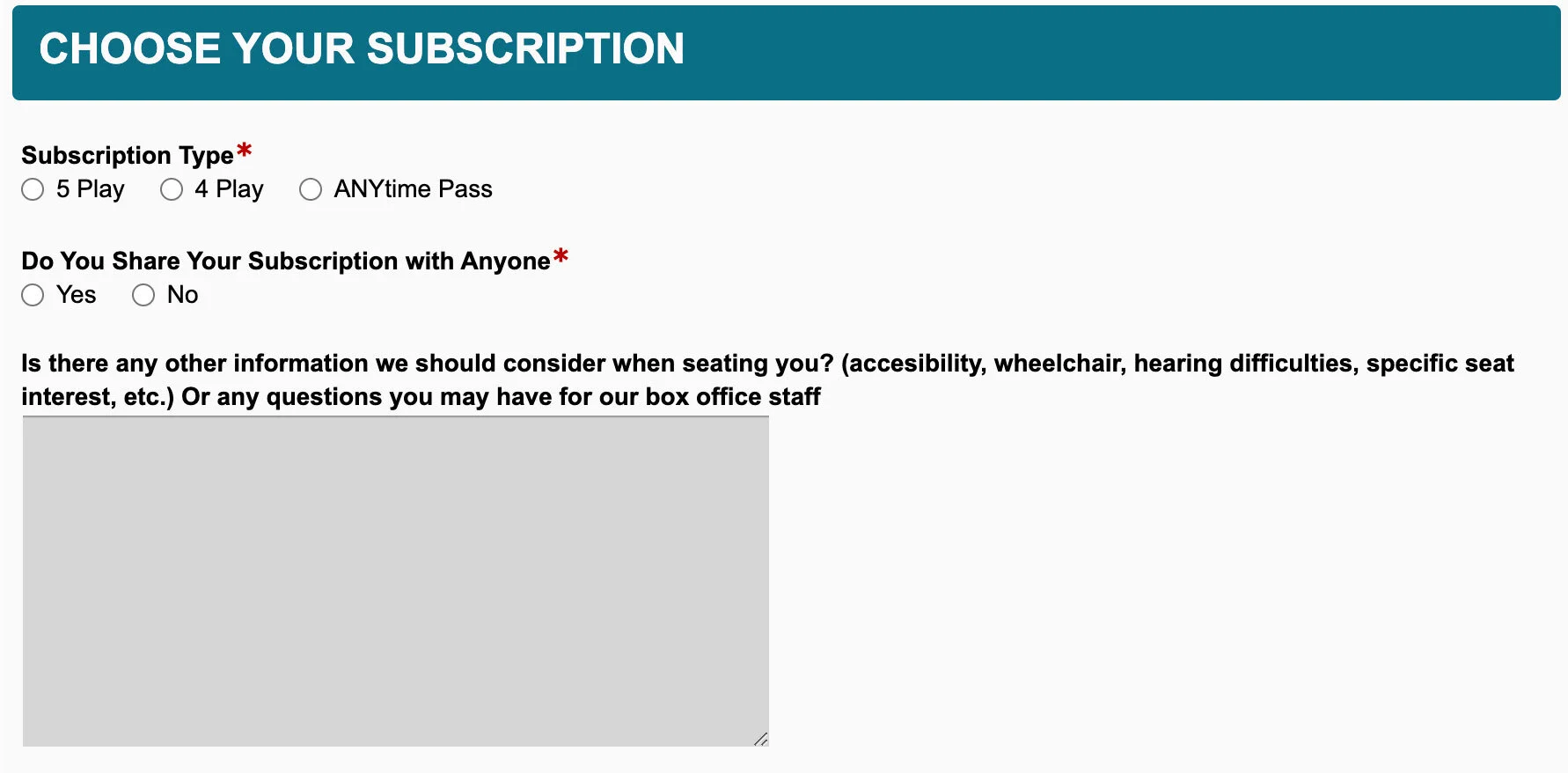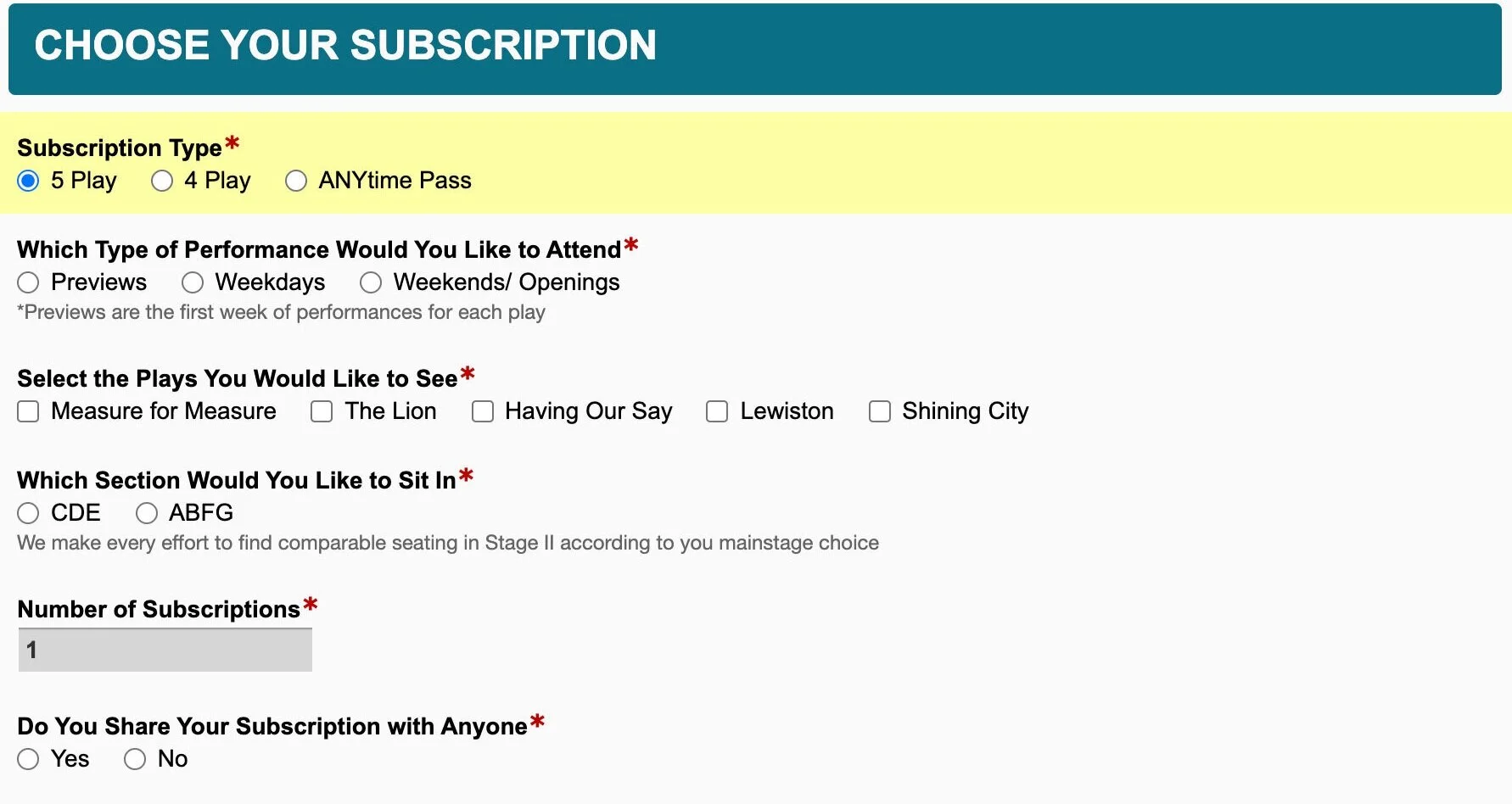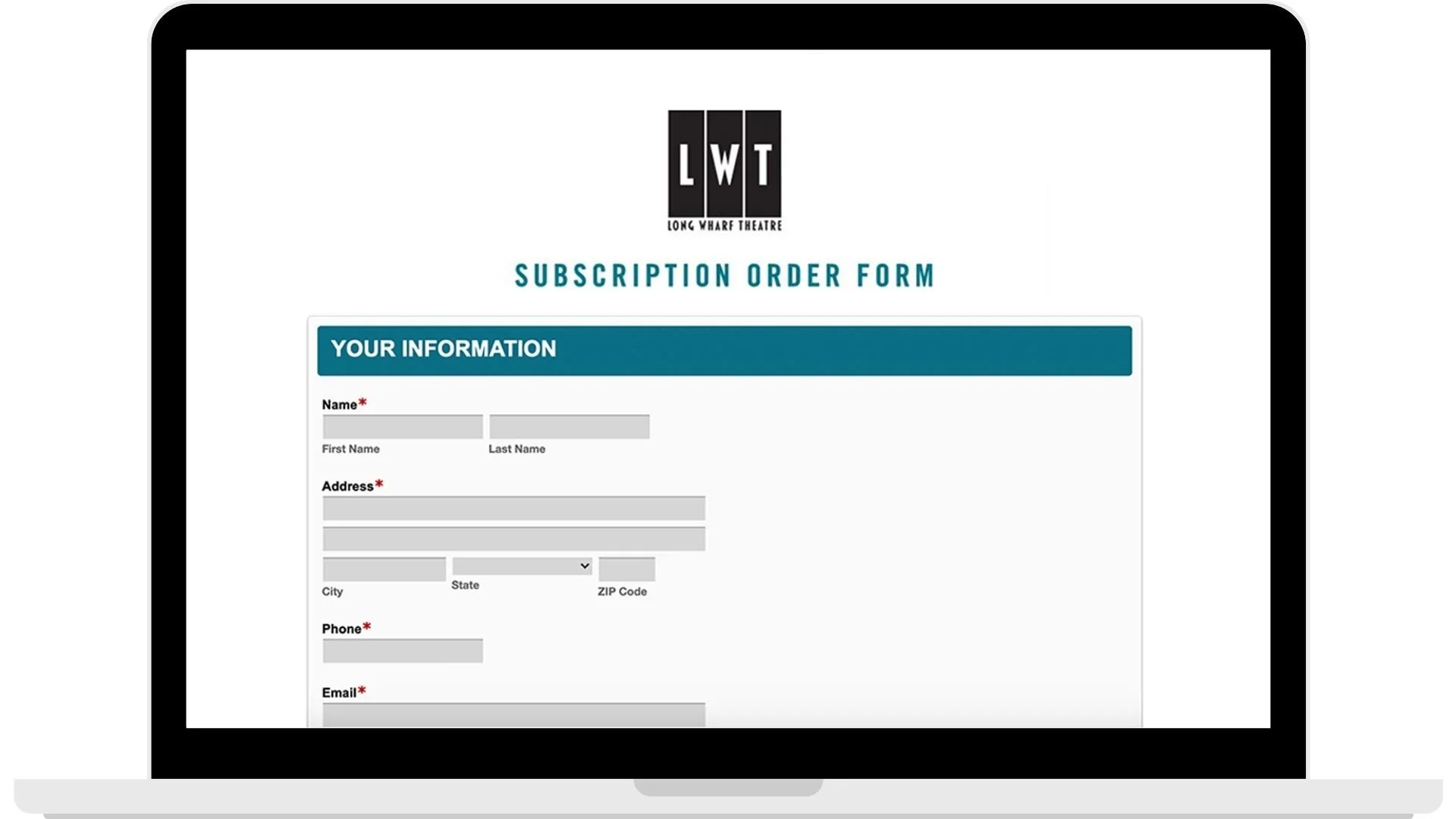Long Wharf Online Subscription Ordering
A cost-effective digital ordering process to improve the subscriber journey and revenue at a Tony-Award-winning theatre.
The Problem
While over half of Long Wharf Theatre’s single ticket revenue was coming through an online ordering process, it still lacked the ability to order subscriptions online even though converting single ticket buyers to subscribers was a key marketing strategy.
As competitors increasingly rolled out online subscription ordering the theatre needed an affordable way to circumvent the limitations of its ticketing system to compete.
The Solution
I designed and launched the theatre’s first online subscription order form that provided flexibility and convenience in ordering for users and in processing for box office staff.
Research
To learn more about Long Wharf’s audience and the subscription ordering process I analyzed data from annual and show-specific audience surveys that I and other marketing staff had conducted. I also examined ticket sales data and spoke with box office staff who processed subscription orders to understand both their experiences of the process and those of patrons.
50% of Long Wharf’s single ticket buyers used online ordering
— Audience insight from surveys and ticket sales data
Findings
Single ticket buyers were on average 10-15 years younger than subscribers and were less likely to be retired
50% of single ticket buyers used online ordering at some point versus 80% of subscribers who contacted the box office directly
25% of subscribers preferred emailing the box office with single ticket requests over calling
All patrons regularly complained to staff about phone wait times and inconvenient box office hours
Subscription ordering season made phone wait times longer
Customer service reps would regularly revert to recording subscription orders on paper forms during calls and processing them in batches with mailed forms when phones closed to shorten calls
Ideation
Unfortunately, Long Wharf’s ticketing system at the time could not handle the complicated choices and logic that subscription orders required, but it was clear from my research that an online ordering process was needed to better support the subscriber journey.
Hearing that subscriptions were already being heavily processed by hand, I came up with the idea of doing a Wizard of Oz approach using a form builder. If I could approximate an online ordering experience for users with a form and collect all the info the paper form did, it wouldn’t matter that processing behind the scenes was basically the same as before.
Design
After some research into options, I chose Formstack because it allowed for secure credit card submissions and offered the organization a nonprofit discount.
Once settled on the platform I created a simple wireframe of the form based on the fields available on the paper subscription form. I then worked to brand the form and match the theatre’s website colors and fonts as closely as possible.
I also consulted the box office manager to make sure I was collecting and communicating the same information the phone and mail order processes did. To help prevent errors that occurred on the paper form, I built logic into the form to ensure users only saw fields relevant to their previous choices as they progressed with their order.
At this stage, I also set up submission messages, email receipt messages, and box office staff permissions for accessing submissions.
Testing
Using subscription choices from existing renewal orders, box office staff placed a series of dummy orders through the form. They were told to check to make sure all order combinations were possible, that the form logic was correct, that submission and email receipt messages were delivered, and that they could access all submissions for processing.
Overall, the testing went well in terms of data entry and order submissions. Box office staff suggested a few helpful additions for customer service purposes:
A field for users to choose their communication preference as either email or phone
A mention in the submission message of how Long Wharf would appear on users’ credit cards when they were charged
A basic timeline in the email receipt for when users could expect a box office representative to contact them about seat choices
Launch & Results
The ordering process was launched quietly on the theatre’s website during the beginning of a season. As over 80% of subscriptions were already ordered at that point, the hope was to just see if the process worked and appealed to new subscribers.
By the end of the season, about 20% of new subscriptions had been placed through the form with no user problems. The box office found the process better as well. They could copy and paste information from the submission to the ticketing system instead of transcribing from paper, and most users opted for email contact which, compared to calling, could be done at any time of day and be sped up using an email template.
The biggest challenge was the need for me to update the form by hand as shows closed and subscription packages went away over the course of the season. But this just required creating a schedule for the required maintenance.
40% of new subscription orders came through the form
— The form’s use in the 3 seasons following the launch season
Success & Expansion
With the success and low cost of the first year of this online ordering process it was promoted and used for new subscription orders for the following 3 seasons until the theatre was able to transition to a new ticketing platform. Every season after the first, 40% of new subscription orders came through the form.
I also applied this approach to other ordering problems that different departments had over the next 3 seasons.
Expanded Uses
Community Engagement had ticket ordering forms for their under 40 audience engagement programs because of similar tech limitations in how tickets needed to be processed
Education had online registration forms for their summer camps and classes allowing them to collect revenue, student information, and permission slips all in one user interaction
Development had RSVP and ticket pre-order forms for their annual gala
Marketing had single ticket pre-ordering forms for special early access sales happening before box office staff could finish subscription processing and release shows for sale online


